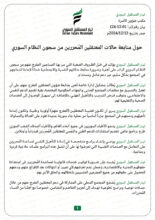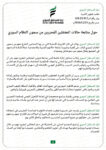Aspects of the Suffering of Syrian Women in Refugee Countries

Introduction:
In contemporary women’s history, many refugee women have shown tangible success in roles of participation and leadership, such as:
- Nadia Murad:
- A survivor of sexual enslavement and sex slavery by the Islamic State organization in Iraq.
- Received the Nobel Peace Prize in 2018 for her efforts to raise awareness of sexual enslavement crimes and violence against women.
- Malala Yousafzai:
- A Pakistani activist for educational rights.
- Became the youngest person to receive the Nobel Peace Prize in 2014.
- Works to promote education for girls worldwide.
There are many examples that we see in reality, even if the media does not show them. Many refugee women contribute with their inspiration and positive, constructive activity in their communities and the whole world.
Syrian Women and Refuge:
Syrian women in refugee countries face a range of social challenges, including:
- Illegal asylum and smuggling: Many Syrian women have been forced to flee illegally, exposing them to risks and material and sexual exploitation. Mothers accompanying children face the same risks.
- Social and religious obstacles: In refugee countries, they face restrictions on their movements due to laws and social traditions, where in some cases, the presence of a male guardian (Mahram) from the immediate family is required.
- Challenges in integration and achieving a decent life: Refuge means changing the usual lifestyle, affecting integration and adaptation to host societies. Syrian women face difficulties in accessing work and education opportunities.
- Family tension and domestic violence: This includes internal displacement and living in camps, increasing family tension and domestic violence. Safety and protection pose a challenge for women and children alike.
Despite these challenges, many Syrian women work towards achieving independence and building their capabilities, challenging societal and economic barriers. Our goal in this article, as all awareness activities should be, focuses on the necessity for everyone to consider gender equality and work towards providing opportunities and rights for women in refugee countries.
Since the outbreak of armed conflict due to the violence of the Syrian regime in Syria in 2011, hundreds of thousands of Syrian women have been forced to flee their country. This displacement is often illegal, exposing them to many problems and risks.
Steps to Help Syrian Women:
Associations and civil society organizations play a vital role in improving the situation of refugee women, including:
- Psychological and social support: Associations offer psychological support to refugee women suffering from psychological trauma due to displacement and wars, organizing guidance sessions and workshops to enhance psychological strength and adapt to new circumstances.
- Awareness and education: Associations play a crucial role in educating refugee women about their rights and opportunities, providing information about health, education, work, and domestic violence.
- Material and economic support: Some associations offer financial assistance to refugee women to improve their living conditions, helping them enhance their economic capabilities through vocational training and small project financing programs.
- Advocating for women’s rights: Some associations work to enhance the political and social participation of refugee women and strive to enforce laws and policies that protect women’s rights.
- Communication and coordination with concerned entities: Whether governments or international organizations, to improve the services provided to refugee women, they also participate in efforts aimed at achieving sustainable development and gender equality.
In short, the role of associations contributes to providing comprehensive and sustainable support for refugee women, striving to improve their lives and empower them to actively participate in host communities.
There are many associations and organizations that help Syrian refugee women in various countries, including:
1- The UN Refugee Agency (UNHCR) in Turkey: Provides support for Syrian refugee women in Turkey.
2- Social Relief Association: Supports refugee Palestinian women in Lebanon and sometimes Syrians, as Lebanon suffers from a lack of activity by Syrian feminist movements.
3- Sana Support Group for Syrian Women: Offers support for Syrian women in Turkey.
More associations and organizations work to support refugee women in various countries, such as Jordan and Iraq, but to a lesser extent.
Conclusion:
Syrian women need more help in all areas, and as is the case in refugee countries, there is clear and evident suffering in internal displacement areas in Syria, which lack funding and support similar to external refugee support. Unfortunately, in the context of a lagging feminist reality, and with Syrian feminists distancing themselves from positively impacting the disadvantaged among their countrymen, there is a dire need for the convergence of various efforts to protect women, as they are the weakest link in our society. Therefore, we recommend in the Family Affairs Office the following:
- Pay greater attention to Syrian women suffering from the difficulties of refuge outside Syria.
- Link those efforts to the internal situation in Syria and consider internal displacement a problem like external refuge. We at the Syrian Future Movement are very cooperative in our offices in the cities of Azaz and Afrin and are open to any communication and coordination to support Syrian women internally.
- Utilize the international community to increase the activity of feminist associations that focus on addressing the issues and concerns of Syrian women and alleviating their suffering.
Wheba El-Masri
Family Affairs Office
Research and Studies Department
Articles
Syrian Future Movement (SFM)






